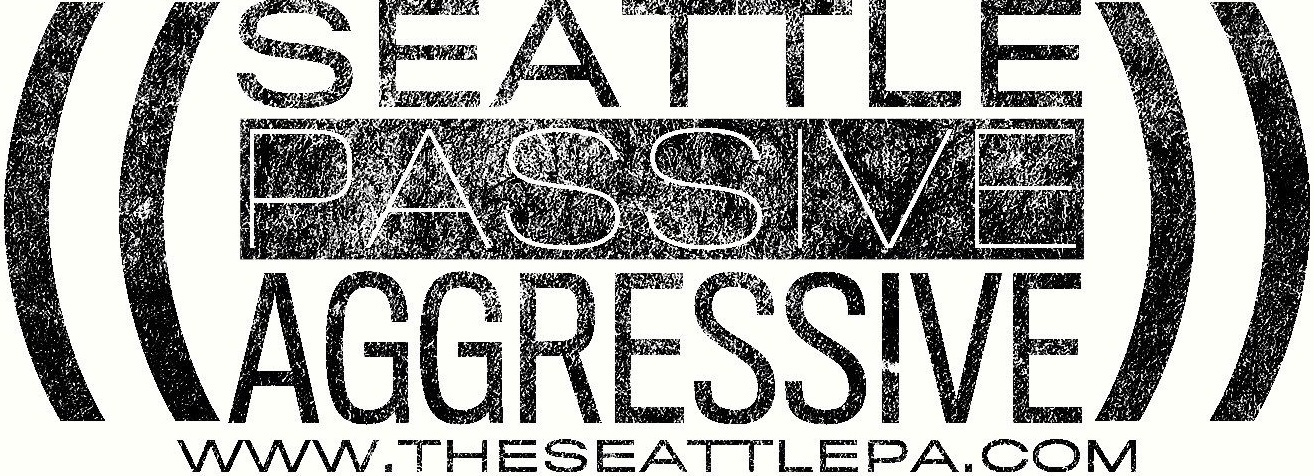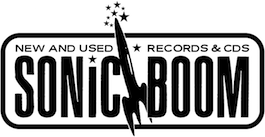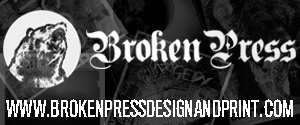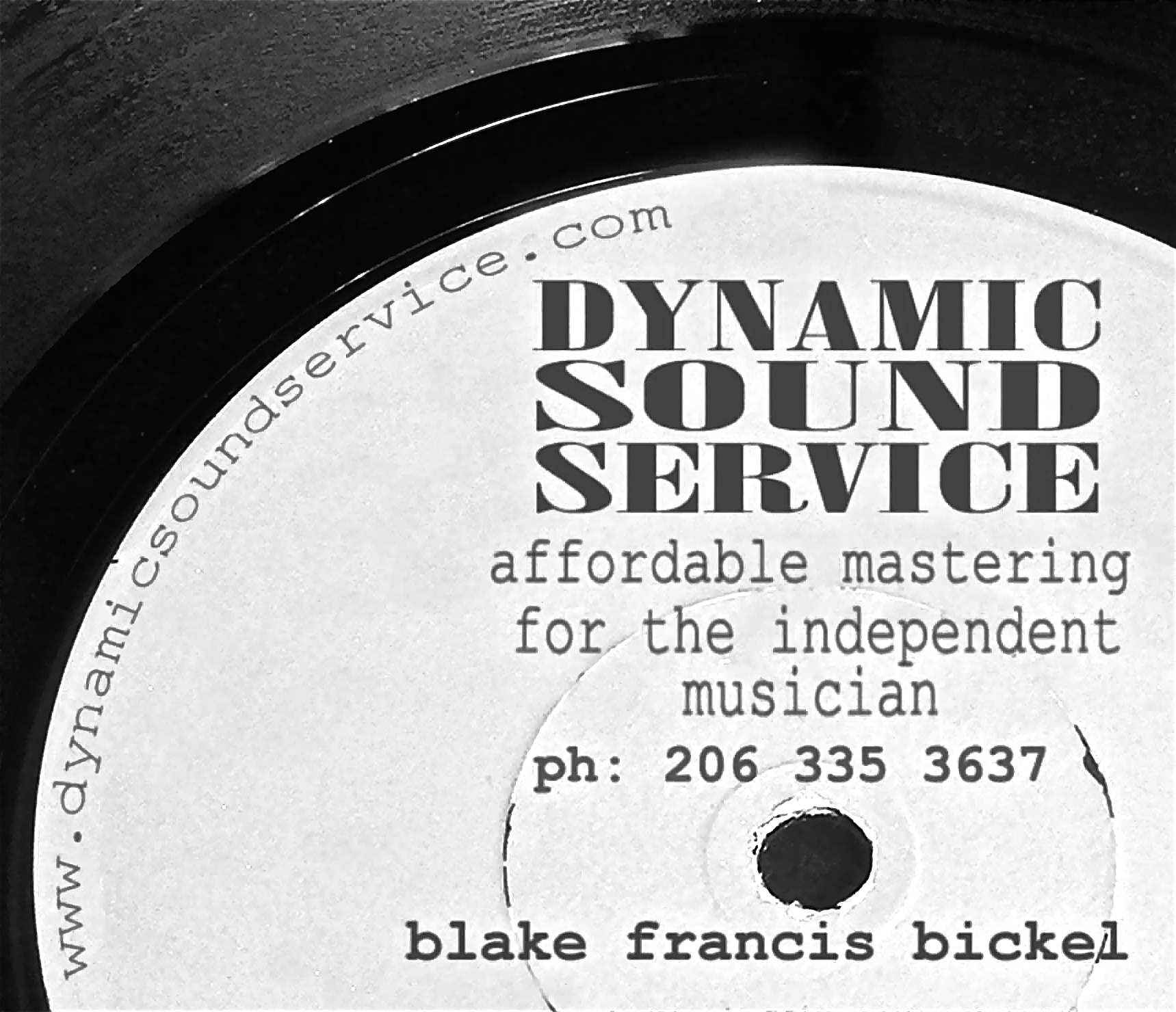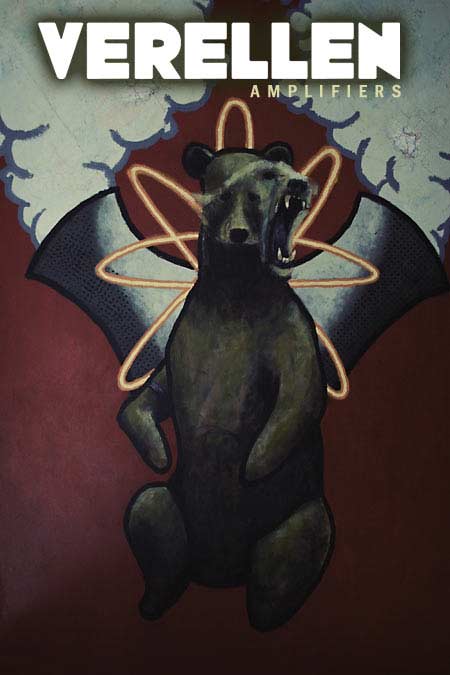Kevin, Ian, and Ryan from KISW’s Metal Shop
Interview by Brian Kim
Photo by Neil Lim Sang
SPA: Let’s start with some basic info. What are your names and what is your role on Metal Shop?
KEVIN DIERS: My name is Kevin Scot Diers, I’m 32 years old and I was born in North Carolina. I am on-air co-host on Metal Shop. Behind the scenes we also share responsibilities – we all have a hand in social media, interviews, making the playlist, blogging and updating online content, seeking out shows to promote, etc.
IAN REAS: My name is Ian Reas, I am de facto producer and on-air co host of Metal Shop! If you were to break down the roles Kevin and I share on the show, you could call me the play-by-play guy to Kevin’s commentary.
RYAN SCHUTTE: Ryan “The Beard” Schutte I’m the background/infrastructure guy. If Ian or Kevin need anything done, I’m the guy to do it. Production, scheduling interviews, social media, etc. I’m the swiss army knife of the crew. I’m here to get their backs and make sure the show runs smoothly. We generate 4 hours of content out of scratch on a weekly basis. It’s a lot of work. Each one of us puts a little bit of time into it over the course of the week, but for the most part the whole thing comes together in the three hours before the show. It’s a mountain of work with a LOT of moving parts behind the scenes. I’m here to take on a part of that workload.
SPA: Where did you all come from? How did you end up involved in radio, and more specifically, doing Metal Shop?
DIERS: I was born in North Carolina, moved to New Jersey, then came to Washington at a young age. I first started going to hardcore, punk and metal shows around the age of 14. I got into radio by way of KGRG, the campus radio station at Green River Community College. In 2003 I started taking classes at GRCC and became heavily involved in the radio program. In the summer of 2004 I started a hardcore punk radio show called Dead Air – a show that’s still going on today believe it or not – and just a few months later brought Ian on as co-host when he joined the radio program. The early years of Dead Air were crucial in getting me to where I am today. Because the program was so D.I.Y and student-centered, it forced me to learn firsthand how to promote, network with bands and record labels and how important of a role a radio program can have in a music community. In 2006, I left KGRG for 2 years to get my four year degree up in Bellingham at Western Washington University. While I was up North, Ian kept Dead Air going strong at KGRG. I went to school for print journalism but continued my pursuit of radio when I got involved with KUGS 89.3 at WWU. I soon started a new hardcore show of my own called Dance Floor Justice – named after the Project X song, of course. In 2008 I graduated from Western and moved to Seattle to find a job and hopefully find a writing gig. I jumped right back in to the co-host role of Dead Air at KGRG with Ian and we were a team again.
From there, things get kind of crazy. I had started working at Entercom – the company that KISW is a part of in the summer of 2009. I was an overnight board-operator and tried to fill in as much as I could, pretty much just to be noticed and get my foot in the door. I had been a listener of Metal Shop on KISW since high school, when my friends and I used to sit around his house on Saturday nights and drink 40’s while blasting the show. Anyways, somewhere around the beginning of 2010, the longtime hosts of Metal Shop, Steve Rauch and Kevin Jacober announced they would be moving on from their role and that KISW would be holding an online job search to find the new hosts. Being that Ian and I already had a solid foundation in radio and a love for heavy music, we submitted our application, demo tape and playlist and waited to hear back. I believe there was something like 150 applicants, but we made it down to the final 3 teams and sometime early March 2010 we had an on-air interview where we had to pick a bunch of music to play and talk about it, get questioned by Steve and Kevin, etc. Well, we must have done pretty well, because the next week we received a call live on air during Metal Shop where they told us we were the new hosts of the show. Right after I hung up the phone I ran outside and yelled FUCK YEAH as loud as I could in the middle of Broadway and 10th. That was in March 2010 and as I type this it’s March of 2018, so it’s officially been 8 years since that phone call.
REAS: I’ve written and re-written this paragraph like ten times. It’s honestly really hard to describe the amalgamation of bizarre life events that combine to lead you into a career in radio. You know what it was for me? Honestly? Kenny fucking Loggins. I’ll never forget being about 9 years old, stealing my dad’s shop radio and calling in a local station to get a request for Danger Zone. They told me they’d play it, so I spent 8 hours holding my radio antenna out of my bedroom window, and they never played it. I knew right then and there I needed to take out those Kenny Loggins hating mother fuckers.
Seriously though, Kevin started a college radio show called Dead Air when we were 18 and 19, which we cut our teeth on in a very drastic way. Years later he ended up moving up to WWU in Bellingham and I continued the show for a little over two years while he took the time to host his own show Dance Floor Justice at KUGS, which I really think was incredibly healthy for the both of us. It allowed us to grow separately and when we finished there and he rejoined me at KGRG to round out our era of college radio, we were far more prepared to take on the opportunity of Metal Shop when it presented itself to us. I send a huge thank to you Kevin and Steve from the previous administration of Metal Shop for seeing potential in us and giving us a chance to put our hard work to the test.
SCHUTTE: I started in radio at KBGA in Missoula, MT and quickly became the Metal Director. I was there for 2 years before moving to Seattle. At the time I was very socially awkward and had a really hard time talking to people and making friends. I was really into metal and spent most of my free time playing guitar and researching metal from around the world. Radio seemed like a good way to meet other people that were into music and turned out to be a great way for me to practice talking to people.
As for how I ended up on Metal Shop, that’s a great story. While I was still living in Missoula I went on the first 20,000 Tons of Metal cruise. It was 40 metal bands on cruise ship to Mexico. My bandmate and I smuggled 30 weed cookies onboard and I was slamming those things like they were skittles. I met up with a couple of Finnish dudes that had smuggled a bunch of everclear onboard, amongst other things. I don’t remember much from those 4 days, but I must have made an impression because I ended up with a lot of close friends that I still talk to regularly. Fast forward a year or so and I had moved to Seattle. I was at a metal show and this dude walked up to me and just initiated conversation like he knew me. I faked my way through the conversation until I figured out I had met him on the boat (I had no memory of this). When he found out I left my radio show to move here, he mentioned that he had some friends that were looking for an intern for their metal radio show. Those dudes were Kevin and Ian. Best job of my life and I got it by blacking out on a boat.
SPA: Are you guys involved with any other cool stuff?
DIERS: I have a day job of course, and I am a freelance writer for The Stranger. I also host the local music show on KISW called Loud and Local from 10pm until midnight every Sunday and have a pro wrestling blog on KISW.COM called Jabroni Journal.
REAS: It’s arguable! I play bass in a band called Junebugs with my friends Steven and Blake from a band called Random Orbits. It’s very much Get Up Kids throwback material and not close to Metal Shop stuff in any way.
SCHUTTE: Outside of Metal Shop, I play guitar in Pound, do freelance audio work, and work as a stagehand at both showboxes. I also have a podcast called Get Weird with Max and The Beard on The Soundcasting Network and I’m in the middle of booking two tours for two different bands from Canada. I’m not happy unless I’m working on something. I’m always stretched pretty thin but I never feel like I’m working because I genuinely love everything that I do.
SPA: What are your goals with Metal Shop?
DIERS: To accurately represent the killer metal scene of the Northwest, to expose bands that would otherwise be looked over, to give people something to look forward to on Saturday night, to give people their first metal experience – I love when we give away tickets to people who tell us it’s their first concert experience. I also want to interview Iron Maiden.
REAS: The first few years of hosting this show, my goal was to be able to host Metal Shop longer than our progenitors Kevin and Steve. At the time it was kind of laughable to think we’d be able to host such a free-form show on literally the biggest radio station in the city I grew up listening to. Now that we’re coming up on hosting this show for 8 years, my goal is most definitely to help focus our strange broadcast strength on supporting legitimate local artists, bookers, venues, and anyone who’s put their heart and life on the line to help further this weird little club that is heavy metal, hardcore, punk, etc. The numbers are there. The genuine love for this music and life exists. It should be allowed to take a step up and out into a bigger set of exposure. The opportunity we have here exists next to nowhere, especially on terrestrial broadcast airwaves, and I think it could seriously thrive on a larger scale.
SCHUTTE: I would love to see Metal Shop expand to other markets. The dream would be to get syndicated (meaning that we would be on multiple radio stations at the same time). The only downside to that is that we wouldn’t be able to do as much locally and I would really, really miss that.
SPA: What do you like most about Metal Shop? Either as a DJ, or from the perspective of a listener?
DIERS: I have gotten comments from people who assume that our bosses or the company that we work for is in charge of making our playlist – it’s quite the opposite. One of my favorite parts of Metal Shop is that we are given 100% control of the playlist and the power to jam whatever insanely brutal music we feel like jamming.
Obviously, we are not the first hosts of the show. Metal Shop was started in the early 80’s on KISW and has consistently been an institution in the Northwest since. Each DJ or team has their own little flare that they add to the show and it constantly evolves. I can only hope that we can add our little piece to the puzzle. It blows my mind that there are people who have been with Metal Shop since day one and have been listening the entire time. I’m pumped to carry on that tradition every week.
REAS: I grew up watching public access TV, late at night on weekends when my parents thought I was asleep. Shout out to Jerkbeast! I’ve always gotten that same feeling from either listening to or hosting Metal Shop. The fact that you can call up and actually talk to the host, talk some shit, make a request and actually have it happen has everything to do with why I fell in love with heavy music in the first place. The closeness you have to the artists or broadcasters, followed up almost immediately with the realization that you can become deeply involved right away if you want to. For the kids by the kids, always. We literally did it, and I expect nothing less from the people who will step up and take it from us.
SCHUTTE: We get to play whatever we want through a 100,000 watt transmitter (the largest allowed by law) with a reach of 300 miles in every direction (on a good day with ideal conditions). That reach is hitting an average of 50,000+ people. Picture yourself standing on home plate at a sold out baseball stadium and you’ll be in the ballpark of what it’s like to be on air on Metal Shop. And we’re blasting all those people with everything from Dying Fetus and Emperor to Sleep and Cynic to Archspire and Madball to things way off the beaten path like Katalepsy, Trocotombix, Dopelord, Get the Shot, Nylithia, Gorod and so many more. It’s one of the longest running live metal radio shows in the world and the longest running live metal radio show in the US on the biggest radio station in the 13th largest radio market in the United States. For heavy metal radio, it doesn’t get any bigger than this. It really is an honor to be a involved in a show like this and to be a part of that legacy. Being a part of Metal Shop has allowed me to do a lot of really cool things that I wouldn’t have gotten to do otherwise. I got to go on stage and introduce Judas Priest in front of a sold out crowd at the Tacoma Dome, I got to spend the evening partying with Jason Newsted in the studio, I’ve got a few insane backstage stories, the kind of things you’ve only read about or seen in a movie. I’ve been on so many tour buses and gotten to interview so many of the people that I grew up listening to. Some of the dudes that were on posters on my wall are now friends of mine and it still blows my mind for a second or two every now and then when I get a text or a message from them. If 14 year old me could meet me now his head would pop. Beyond that, Kevin and Ian are like the big brothers that I never had. They’ve helped me in so many ways and knowing them has made me a better person. I really enjoy spending time with them every week. If I didn’t, I wouldn’t be doing this. This show is so much fun to work on.
SPA: What other radio do you guys listen to or like? What do you like to hear from other radio shows?
DIERS: I listen to KISW, Hot 103.7 (throwback R&B jams) and KUOW for news. I like to hear personality and most importantly, good music.
REAS: My favorite radio show on earth was just cancelled last year, and I can’t tell you how bummed I am about it. It was a show called The Swing Years on KUOW and I used to listen to it every single week on my way to host Metal Shop. It was the best in swing, Jazz, etc and was seriously the perfect way to help me focus and zone in on a weekend evening before we hit the air. Also, check out our buddy Trevor’s show. It’s called Dead Air and it’s pretty special to us.
SCHUTTE: Honestly, I don’t listen to the radio much outside of work. I’ll turn on NPR every now and then, but for the most part, if I’m listening to something, I’m listening to an album. If I am in a situation where I’m listening to the radio, I occasionally catch things that the average person wouldn’t notice. Gaps between songs, little quirks in production, DJ flubs, weird edits, bad beds, the list goes on and on. Whenever I hear anything like that, I cringe. I like radio shows that sound very tight, clean and professional. It’s just hardwired in from working in radio for so long. I was in a car and heard a 5 second gap between songs on a station a few weeks ago and my anxiety went through the roof. 5 seconds is an eternity in radio. If you hear 5 seconds of dead air, you should know that behind that board is a DJ that is having one of the worst days of his life. I have stress nightmares about dead air.
SPA: How do you find new music? How do you decide what to play on the show?
DIERS: I find new music a variety of ways. I go to a lot of shows of course, but we are also provided a solid amount of promo music from record labels all around the world for radio play. I also love getting recommendations from friends about bands to check out, and I always check out the New Metal Tracks playlist on Spotify to see what I may have missed.
REAS: That’s a good question. All three of us have a pretty wide variety of musical tastes, but when it comes to Metal Shop, we usually have a pretty standard set of measurements on what does and doesn’t belong on our show. It’s kind of cliché and lazy to say it’s just an ear thing, but when a band sucks, they fucking suck and don’t get played on the radio. That said, we do allot a wide set of parameters when it comes to rad up and coming bands, local bands, new projects, new EPs, experimental jams, etc. If its cool and if you’re good people, you have the utmost chance to get played on Metal Shop.
SCHUTTE: I scour the internet for new music. There’s a couple of European and Russian download sites that I go through once or twice a week and I’ll just download things that look good. It’s similar to the way I used to pick out CDs at the record store in high school. I’d check out anything with a cover that caught my eye. I really go out of my way to avoid most blogs. When I hear a band for the first time I really try to form my own opinion on them without outside influence. That’s my favorite way to get into a band because I know that I genuinely like that band, not because of something that I’ve read or heard, but because I’m into it. In complete contrast to that, I also really enjoy talking music with people. When I run into someone that can rattle off a list of rad bands that I’ve never heard of, I get stoked. I write down band names constantly and spend a lot of time checking out the music that people tell me about.
SPA: What are your thoughts about the heavy music scene in Seattle? What do you like about it, what would you like to see more of?
DIERS: There are so many good bands going in the Northwest right now. I love that there is a huge throwback old school-ish heavy metal mini-scene with bands like Skelator, Substratum and Weaponlord. That is so rad! I guess if I had to think of something I would like to see more of it would be mixed shows with say, a hardcore band, a death metal band, a thrash band and a doom band or something like that.
REAS: This is an immediate answer for me. More mixed bills. Anyone who went to shows in the late 90’s or early 2000’s knows how wacky some of those bills got, but it really forced people of different musical styles or preferences to be forced to witness new music that they ended up actually falling in love with. I both want to see, and love when bands of different genres inside of metal, hardcore or punk book shows together and bring their people into one building. We live in a small, very accessible world, so to me it doesn’t’ matter if a band plays Century Link, or a bowling alley in the Tri Cities. The heavy music scene in the NW is very tight knit and vibrant, and more unity and togetherness could make us one of the biggest scenes in the world again.
SCHUTTE: We have a decent scene, but it could be a better. I go up to Vancouver once or twice a year for shows and to visit friends and I’m always blown away by their metal scene. A lot of the people that show up to the big shows take the time to show up for the local shows and their scene is better for it. I’d really like to see more of that in Seattle. There are some great local bands in town and I’ve been to so many shows with very low attendance. Even bigger shows aren’t getting the audience that they should. It’s really sad to see. I don’t think it’s a promotion issue, because I see posters all over the place for all kinds of shows on all levels and my newsfeed is just a wall of posts about shows. I think people just aren’t going to shows as much as they used to and it bums me out. Of course, I’m being a bit hypocritical because I haven’t been going to as many shows as I used to. I just don’t have the free time anymore. In the town I grew up in, we NEVER got metal shows, so I when I first moved here, I was going to 3-4 shows a week while working, going to school and playing in Pound. I didn’t care what I was going to see, I was just excited to see shows and meet other people that were into heavy music. I really miss those days and I wish I could go to more shows than I do. But I digress. If we want a stronger heavy metal scene, it has to start at the high school level. More kids need to get into art and heavy music at younger age and they need to go out and start bands and go to shows and get into booking and making posters and promoting. There are so many other aspects of a strong local. It’s not just the bands. The bands can’t do it alone. It takes an army of people all working together to put on great shows. I just saw Despise You at the Black Lodge a few nights ago and a bunch of kids were there. If I saw Despise You when I was that young it would have changed my life. That’s why I feel very strongly that places like the Black Lodge, Vera Project, School of Rock, Real Art Tacoma, The Seattle Passive Aggressive (the zine you’re reading now) and all DIY spaces and art centers are so incredibly import to a strong and healthy music scene. They need to get into it while they’re young and they need to have cool places to get into it or they’ll find other vices or hobbies outside of it and won’t have the need for it that so many of us have. Or they’ll just grow up and never realize how empty their lives are without it.
SPA: How do you feel about the role of terrestrial radio in an age of streaming services, online radio, podcasts, etc?
DIERS: I think there’s always going to be a place for it, but now more than ever it’s important to give local, personality driven content. If we were to just play an assortment of songs we could be easily replaced by a Spotify mix on random. It’s the weekly segment, interviews and the personality we bring to the show that breathes a different life into what we do.
REAS: Statistically, radio isn’t suffering in any way, and even after the recession of 2008, terrestrial radio took off. The argument against that would be regarding the fact that vehicles were going to all be armed with satellite radio, but it would take over ten years for those vehicles to enter the ownership of used car owners. Even as we approach that point, it doesn’t seem to be a problem. Regarding podcasts, I say more podcasts always! I listen to podcasts all day and if radio can’t catch up to interest-based content, then let it die anyway.
SCHUTTE: I’d like to think that shows like ours fill a special niche. We work hard to create a solid playlist every week with new music, interesting stories and interviews with people from all different aspects of the global metal community. There isn’t anything else out there like it and I know that because I’ve looked. Our show makes people happy, or at least a little less miserable. We’ve gotten letters and phone calls from people in jail that just really want to hear a song that they haven’t gotten to hear in a long time. We gave away a pair of tickets to Slayer and the person that won them met his wife at that show. We changed that dudes’ life. They just had a kid and sent in a picture and told us that they put on Metal Shop for him every Saturday night. We get calls all the time from people that are working a bummer of a job or have just lost a loved one or are going through a rough patch that are listening and our show is making their lives just a little bit better. It blows me away how much impact that little 10-15 second interaction on the phone and hearing a song they like on the radio can have on someone’s life. Beyond that, I have a deeper, more emotional connection to radio. At a time in my life when I was very young and feeling really, truly down and alone, I discovered a late night metal radio show that I listened to every night. I would huddle under my covers with my little green hand crank radio and listen and laugh and discover new bands and music. Listening to that DJ made me feel like I had a friend when I didn’t have a friend in the world. It really helped me get through that time. I’d like to think that somewhere out there is a kid like me that is having a rough time of it and is turning to music for refuge and they’re listening to us, getting a laugh, learning about new bands and music and they’re feeling a little less alone. Who knows, maybe that kid will grow up and start a kick ass band that will take over the world or will get into radio and carry the torch.
SPA: Anything else you’d like to add?
DIERS: We have some of the coolest and most loyal listeners. We wouldn’t be doing what we do every week if it wasn’t for them.
REAS: Yes, a definite huge thanks and tip of the cap to James and everyone at Seattle Passive Aggressive. You don’t have to do this, but you do and that speaks volumes about the validity and genuine nature of this zine. Thank you to anyone who listens to Metal Shop and legitimately understands that we do this as a labor of love and shares that same effort in their every day life with music or anything else.
SCHUTTE: Please go to more shows and bring your friends that haven’t gone before. Learn to play an instrument. Start a band. Learn to paint or write or book shows or make flyers and posters. Get involved and be a part of your local scene. Donate to Vera Project and support DIY spaces. I spent most of my childhood wishing I could be a part of a strong heavy music community and we have that here. If you’re not already involved, get in the game and become a part of it. If you’re not sure how, give us a call during the show, message our Facebook page or shoot me a message on my personal page and I’ll take you out to lunch and give you a full rundown of all the ways that you can get involved.
